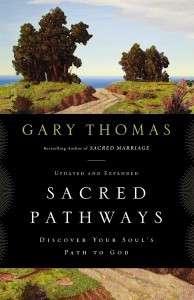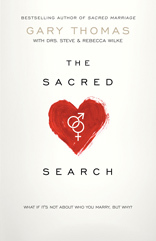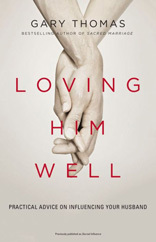Gary L. Thomas's Blog, page 48
June 12, 2019
Beds!

Nicolas Rolin frolicked, adulterized, gambled, and even murdered his way through the fifteenth century until he looked mortality in the face and realized he was going to die sooner rather than later. Given that he had broken every one of the Ten Commandments at least once, the prospect of facing God terrified him.
 A priest told him his only chance was a generous act of charity, so Rolin built one of the first public hospitals in the world, located in Beaune, France. Each bed held two patients. These beds weren’t particularly large by modern standards, about the size of what we’d call a twin bed today. As I looked at them while touring the hospital, I was a bit grossed out by the thought of lying so closely to another sick person but, in fact, the hospital soon discovered they had to recruit the meanest, most cynical nun they could find to stand guard at the door to keep people out.
A priest told him his only chance was a generous act of charity, so Rolin built one of the first public hospitals in the world, located in Beaune, France. Each bed held two patients. These beds weren’t particularly large by modern standards, about the size of what we’d call a twin bed today. As I looked at them while touring the hospital, I was a bit grossed out by the thought of lying so closely to another sick person but, in fact, the hospital soon discovered they had to recruit the meanest, most cynical nun they could find to stand guard at the door to keep people out.
Why?
Many people started faking illnesses just so they could sleep on a bed, even if that meant sharing close air space with a disease-breathing bedmate.
In the fifteenth century, beds as we know them today were relatively rare. You slept on straw, on the ground, perhaps on a blanket. Sleeping on a bed felt luxurious, even if you had to share it with an ill stranger.
As one who travels about a hundred nights a year, I’ve slept in more beds than I can count. Usually I’ll request a new room if I’m placed next to the elevator or the ice machine, both of which attract a lot of noise. But following my return from France (and a tour of the historic hospital in Beaune), I stepped out of an elevator in Saskatoon and saw my room sandwiched between the elevator and an ice machine.
One month before, I would have muttered to myself, “I have to sleep in a bed by the elevators across from an ice machine?” Instead, this time my attitude was entirely different: “I get to sleep in a bed by the elevators across from an ice machine!”
For most of human history, beds have been an unparalleled luxury, not to mention warm showers and climate-controlled rooms. We are so spoiled in this day that it’s nearly impossible not to take for granted what once would have been considered extreme luxury.
And thus we become hyper-intolerant of the smallest inconveniences.
When you’re disappointed in your marriage, heart-broken over one of your children, or frustrated in your employment, it’s easy to forget how luxurious the rest of our lives are compared to the ninety percent of earth’s inhabitants who have gone before us. I believe we could endure a few more disappointments in life a little bit better if we asked God to open our eyes to the blessings we’ve become accustomed to.
We pray as if happiness depends on getting what we don’t have but want. In reality, happiness is often about learning to be thankful for what we already have and appreciating the things we take for granted that would have astonished our ancestors.
This morning, as I wrote, I heard several sounds: a washing machine spinning its final cycle. Air-conditioning clicking on when the house temperature inched above seventy-three degrees. A toilet flushing in the background. Any one of these three modern conveniences would have revolutionized the lives of common people up until the last century or so. Their invention would have been the talk of the town. Today, we complain if one spouse leaves a sock on the floor, we fight over where the thermostat should be set, and we yell at the kid who forgot to flush.
See the difference? Instead of being grateful for these luxuries, we fight over the new circumstances they set up!
One of the biggest determiners of how happy you are is whether you think more about what you already have that makes life so comfortable and wonderful, or whether you obsess over the one or two things you lack that make life feel a little less comfortable.
 The same principle applies to marriage and parenting. If I stop asking God to change my spouse and instead spend time thanking God for the many qualities I have learned to take for granted, I will become much happier in my marriage. If I pause to mention to God the graces he displays in my children rather than always praying about the one or two things I wish he’d “improve” in them, I’m going to have much more joy in parenting and offer much more love to my children.
The same principle applies to marriage and parenting. If I stop asking God to change my spouse and instead spend time thanking God for the many qualities I have learned to take for granted, I will become much happier in my marriage. If I pause to mention to God the graces he displays in my children rather than always praying about the one or two things I wish he’d “improve” in them, I’m going to have much more joy in parenting and offer much more love to my children.
For the Christian, thanksgiving isn’t just a lifestyle and a commitment; it’s also a command: “Give thanks in everything, for this is God’s will for you in Christ Jesus” (1 Thess. 5:18).
My relationship with God began to change when I began keeping a list of all the marvelous things he is and does as evidenced in Scripture. Instead of trying to browbeat him into doing one more thing I thought mattered, I began spending more time thanking him for what he has already done and for who he already is.
And then I did the same for my wife. The year Cherish came out I kept a daily journal of Lisa’s excellent character qualities and acts of kindness, with a view toward giving it to her at Christmas. It was a gift to me as much as it was to my wife, as it made me a much happier husband who feels blessed rather than disappointed.
Here’s what I’ve found: when I’m consistently thankful for what I’ve already received, joy overflows, happiness reigns, and contentment covers me from morning to night. I enjoy what I already have that much more and am able to endure what I don’t yet have with a little more patience.
Thanksgiving may be a one-day holiday in the United States and Canada, but in the Christian world it should be a way of life, one that will usher us into a new way of thinking, and a new sense of well-being with God, our spouse (or lack of one), and our children.
The post Beds! appeared first on Gary Thomas.
June 5, 2019
The Good Guys

I got a call from a friend who had some extra time on his hands while he was at the airport waiting for his wife. “Hey, Gary,” he asked me, “why is it that when I came home from a trip, I’m always taking Uber to my house. But when my wife comes home, it’s assumed I’ll be there to pick her up? If I told her to call Uber, it would be a declaration of war!”
We laughed at the double standard and moved on.
Most of my guy friends live with double standards like that.
Another friend has served God and his family heroically. He paid for both of his kids to get through graduate school. He supported his wife while she got her doctorate. But he brings in 100% of the family’s income and he made a reasoned but somewhat risky business move. He still doesn’t know how it’s going to turn out.
He’s not worried about himself; he’s worried about his wife. “Gary,” he said, “I’m a bit old to start over. If this doesn’t pan out, or if I die before it does, what happens to [his wife]? That’s what drives me.”
He could live in a small apartment, but he can’t bear the thought of asking his wife to. He’s overwhelmed by the burden but he’s not responding to the anxiety with sinful behavior. I asked him about it out of concern, and he responded, “Gary, that’s what’s almost sad. I’m too old and tired to be tempted by besetting sin. I just want to go to sleep.”
A third friend, Kevin Harney, is a local church pastor, author, and co-founder of the Organic Outreach International ministry (with his wife). He has many responsibilities and a full life in ministry, but he also enthusiastically supports his wife in her ministry as a co-author on some of her writing projects and a co-presenter at some of her speaking engagements. In fact, one of his wife’s books, Praying With Your Eyes Wide Open is one of my favorite contemporary books on prayer (and I’ve read many books on prayer).
His wife’s younger brother died recently right before Sherry was scheduled to lead a conference on prayer. Kevin quickly volunteered to step in to speak for her at the last minute so that her conference would not need to be cancelled (which would have been a great loss to those who had planned, advertised, and organized it). With a schedule already bursting at the seams, Kevin didn’t have time to do this but he made time to protect his wife’s name and interests. Then, that same day, he got on a plane, flew to join his wife on the other side of the country, and stood by her side as together they delivered the message at her brother’s funeral.
Those are the kinds of guy friends I have. I am surrounded by men who heroically serve, honor, respect, support and cherish their wives.
But when I read Christian blogs and go on social media, I’m bombarded by how awful men are, how they are abusive, power-hungry, dismissive of those who prey on women, and misogynistic. I don’t doubt these stories; many of the readers of this blog have been deeply hurt by men in all those categories. I agree with the voices of many that there needs to be not just less tolerance but no tolerance for the way women have been mistreated by men.
But for this one post, I’d like to highlight and pay deference to some of the good guys.
When I taught a seminary class that was equally divided between men and women, we all laughed at the difference between Mother’s Day sermons and Father’s Day sermons. On Mother’s Day, women get handed roses and chocolates and are told that everything good in the world is good because they created it, touched it, raised it, and blessed it. Men are handed shame, guilt and blame for world events, the breakdown of the family, and the anger of women in general. I just about lost it one Sunday when a pastor chose to preach on Absalom’s raping of Tamar on Father’s Day, asserting that, “if we think about it, all of us men are like Absalom.”
As Father’s Day approaches, let me say that I get why so many women are so angry at so many men. They have a reason to be. I am not defending misogyny, abuse of power, chauvinism, or other male ills. I also get that men’s sins tend to be “creepier” than the sins women are more likely to commit. Of course there’s a double standard. If a woman exposes herself, some wives think their husbands are creepy for looking. If a man exposes himself, everyone thinks he’s creepy for exposing himself. And they’re right.
But can we do one post to celebrate the good husbands, the ones who heroically serve, authentically love, sincerely cherish, and sacrificially give to their wives and children? Can I do that without raising the anger of those who want to vent about how awful their husbands, boyfriends, bosses or pastors have been?
The challenge in doing this is the simple fact that since every man has his compromises and conflicts, the question arises, how perfect does a man have to be to be celebrated?
Samson comes off in the Bible as a man driven by his lusts—for foreign women (including a prostitute), for gambling, and for violence. Samson murders thirty men for their clothes, just to pay off his gambling debts. When I preached on his life recently, I couldn’t use him as a positive example because he’s not. Yet…when you read Hebrews 11, he’s listed among the heroes of faith. Some contemporary bloggers would lose their minds at the writer of Hebrews if he was writing today. They’d boycott his books, demand he be fired and chased out of ministry forever until he is sufficiently shamed for being so insensitive as to imply there was anything positive to say about Samson.
Socially, it is open season on men in general and evangelical men in particular. Sadly, men and evangelicals have given their enemies many easy (and justified) targets to shoot at. But my nature is to be an encourager, and I see so many men and so many churches trying really hard, harder than anyone could imagine, to be among the “good” ones; to serve with good motives; to bless and lift up, not to exert power and authority for the sake of their egos; I see men who have given their wives very comfortable and pleasurable lives at great sacrifice to themselves; I see hundreds of pastors who love God’s word and want to preach it compassionately and fearlessly not for fame and certainly not for fortune, but because they genuinely love God and want to serve people. Yet, if there’s one sentence in a decades’ worth of sermons that could be misconstrued, or one decision in a thousand that may, in hindsight, have lacked discretion, they get pilloried and shamed.
I’m not challenging those who have been deeply hurt by husbands and male pastors, but I do want to encourage the men who feel taken for granted and who often get lumped in with those who deserve censure: God sees your service and your sacrifice. While he hates your sin, he’s on your side and wants you to be forgiven and redeemed, not shamed and shunned. If God can find something to celebrate in a repentant Samson, and then honor Samson for that one small step, he can celebrate you in your repentant brokenness and quest to live a new life.
When I was preparing to preach on Samson (which you can hear here if you want to Samson: for just the sermon, scrub to 22:38). I came across a remarkable book written by Nate Larkin in 2006: Samson and the Pirate Monks: Calling Men to Authentic Brotherhood. With almost unbelievable candor and honesty, and astonishingly good writing (I’m surprised he hasn’t written another book), Nate writes about his horrendous fall into serious and addictive sexual sin, and the road out of it to a life of sacrificial service. I picked up the book hoping to glean something from the life of Samson but that’s not what the book is about. It’s a call for men to stop living independent lives, to form small societies of mutual support and encouragement. We’re not meant to live this life alone and an isolated man who feels shamed and alone is walking toward a fall.
Guys, you know we’re in an open season on men—for some understandable reasons. We’re not going to get a lot of empathy from “the crowd” or on social media. But we can support each other. We can let down our guard with other men and encourage each other to become the kind of men we aspire to be, men who won’t define us by our worst moments, but who will affirm God’s grace, mercy and forgiveness, and inspire us in our aspirations to live, love and serve like Christ.
And for those women, sisters in Christ and wives like mine who genuinely respect us and even like us in spite of our failings and mess ups, bless you. I include Beth Moore in this, who, while challenging the extremes, finds words to affirm the good among those with whom she now has legitimate theological disagreements. Such wives, speakers, writers and sisters in Christ are an oasis of nurturing encouragement in a very angry world.
I’d love for this post to make Samson and the Pirate Monks a best-seller. There are some ugly accounts in it, so for that reason I’d warn traumatized (and I mean that in an empathetic, not judgmental way) women to not read it. But for men who are looking for honesty and a roadmap to encouragement in a world filled with condemnation, this book could be water in the desert.
For the good (not perfect) guys: thanks for your sacrifice. I hope your wives will even praise a few of you in the comments section below.
For those women who have been hurt deeply and traumatically by men: I’m not minimizing your pain. Your hurt is real and justified and needs to be taken seriously. You would have to be a robot not to feel angry and jaded. Just please, for this one post, don’t take offense when I tell some men, “Atta boy; keep it up, brother.”
And wives, if you want to praise your husband below as a message to single women that they don’t have to “settle” for a guy who doesn’t cherish his wife, feel free. I offer this as a very public “Happy Father’s Day” forum.
The post The Good Guys appeared first on Gary Thomas.
May 29, 2019
Delight

Can a celibate nun who was born over five hundred years ago unlock the secret to a more intimate marriage?
Yes, she can.
In her autobiography, Teresa of Avila explains why, for a short season, she avoided being alone as much as possible. She began experiencing spiritual ecstasies in prayer and some of her confessors warned her that these ecstasies must be from the devil rather than God. Being alone with God filled Teresa’s heart with such delight that she couldn’t make the ecstasies stop, so she had to avoid being alone in order to avoid the ecstasies.
For my pastoral work, I had been reading up on recovery with multiple warnings to men about being alone lest they watch something, drink something, eat something, gamble something, or smoke something they shouldn’t.
What a stark contrast, I thought. Today’s believer is often afraid to be alone because our solitary state might lead us to sin; Teresa avoided being alone because God’s favors (in case you’re wondering, Teresa found out the men were wrong) were so overwhelming.
Today’s Christian is often so focused on not doing something—overeating, gambling, substance abuse, porn, etc.—that we chase avoidance (I know, that’s a weird combination of words, but it fits). Reading Teresa’s story reminds me of how essential it is that we learn to delight in God, to chase intimacy.
I can’t even begin to evaluate Teresa’s spiritual experiences. I’m not sure they are possible outside a monastic existence. But just because it doesn’t fit our life to take six months to climb Mt. Everest doesn’t mean we can’t walk up a hill now and then.
If you’re struggling in recovery, marriage or parenting and are focusing on avoidance—not relapsing, not being angry, not striking out, not yelling, etc.—do yourself and your loved ones a favor and spend some time cultivating delight in God. I’m leaning on Teresa to rediscover the joys and fulfillment (not just duty and obligation) of prayer. We can learn how to marshal the positive power of spiritual delight. Teresa is adamant that the only thing that wooed her away from sin were the superior pleasures she enjoyed while communing with God. Until she learned how to receive something better from God, she couldn’t say no to the lesser substitutes offered by the world.
We can live so desperately to get something that we’re never going to get from our spouse, our kids, or worldly experience. What’s particularly sad is that we endure thirsty lives even while living by a reservoir of delight in the affirmation, love, acceptance, and inspiration of God. Let’s move beyond intercessory prayer to spend time communing with God, receiving His affirmation, listening to Him, and meditatively interacting with Scripture.
Lately, I’ve found a great way to put an “exclamation mark” at the end of my devotional times. I focus on one-sentence positive affirmations of God taken directly from Scripture:
God is powerful (Col. 2:12)
God is just (2 Thess. 1:6)
God is faithful (1 Thess. 5:24)
God judges righteously (Jer. 11:20)
Nothing profound, nothing you haven’t heard a hundred times—but thinking on them one by one, trying to draw from them and reminding myself that these are bedrock truths to live by—is like rocket fuel to the soul. Just thinking on one truth about God fills my soul and mind and helps prepare me to go out into a fallen world where people can do awful things and fight petty battles. I can interact with and even enjoy the world without depending on the world.
Where I might push back against Teresa just a little bit is how she saw the world God created as almost a threat to enjoying Him. She “repents” of finding pleasure in relationships, for example, and “confesses” affection that might get in the way of her thirst for God.
 In Pure Pleasure I write about how I discovered that the world can point me to God when I see it as God’s creation, gift and kindness. In fact, delighting in the perfect God opens my eyes to delighting in the world he has created, even a world marred by the fall. God gives us everything that is good—the thrill of the first kiss that is going to lead to something else. The thrill of a baby’s first word. The thrill of that first bite when you’re so hungry. The thrill of a good laugh. The thrill of a good day of work. The thrill of a good day lived together in a lifelong marriage.
In Pure Pleasure I write about how I discovered that the world can point me to God when I see it as God’s creation, gift and kindness. In fact, delighting in the perfect God opens my eyes to delighting in the world he has created, even a world marred by the fall. God gives us everything that is good—the thrill of the first kiss that is going to lead to something else. The thrill of a baby’s first word. The thrill of that first bite when you’re so hungry. The thrill of a good laugh. The thrill of a good day of work. The thrill of a good day lived together in a lifelong marriage.
My second book was Sacred Pathways: Discover Your Soul’s Path to God. Though it was written (I can hardly believe this now) over twenty years ago it’s still selling because the call to learn how we individually and uniquely connect with God is timeless. The way you delight in God will be different from the way I connect with God. The way your spouse spends time with the Lord will take on a different dimension from the way you spend time with God because no two relationships are exactly alike.
While the means will differ, the end must be the same for all of us: delighting in God is essential to our personal health, our family’s health, and our vocational focus. Without delight, Christianity can collapse into a moral obstacle course. That’s not the abundant life Jesus lays out for us.
When you get alone—say it’s a hotel room, or the downstairs living room when everyone is asleep—do you see that as an opportunity to meet with God in a special way, or is it a quagmire of temptation with the ice cream calling out your name, a game controller begging you to get lost for a few hours, or a website saying “you need me?”
A life defined by what we don’t do is a sad life; a life defined by what we love is the life we were meant to live. Rediscover that love and delight in God. To improve your marriage, look away from your marriage up toward the beauty, the excellence, the magnificence of a perfect God. Gazing on him is the only way to sustain a cherishing relationship with any fallen human, including ourselves. Let the rising tide of divine affection lift every “boat” in your life—the boat of marriage, self-identity, parenting, vocation and solitude.
The post Delight appeared first on Gary Thomas.
May 22, 2019
Growing Together Where You Used to Fall Apart

Now that we’re empty nesters, Lisa travels with me on most of my trips, at least the pleasant ones.
Winnipeg in February?
Pass.
New York City in the Fall?
Book two tickets, please.
In our new season of joint travel, Lisa had an uncanny ability to always turn the wrong direction coming out of the elevator. She was so busy recounting a new friend’s history that she just didn’t pay attention. If our room was left coming out of the elevator, Lisa would go right. If we went into the hotel parking lot and our car was south, you could count on Lisa turning north. I became fascinated with this; you would think that at least half the time she would guess right, but it felt like, for whatever reason, that rule didn’t apply for her.
The first couple times Lisa turned the wrong way, I thought it was a simple mistake. Finally, after we had already been at a particular hotel for several nights and Lisa still took a wrong turn I said, “Seriously? Again?”
That didn’t make her feel particularly cherished (as you can imagine), so the next time she did it, I simply stayed where I was and waited for Lisa to notice.
That didn’t work so well either.
As many husbands do, I put the blame for this impasse entirely on my wife. “What am I supposed to do?” I asked. “If I say nothing, you get upset. If I mention it’s the wrong way, you say it makes you feel stupid. I can’t win.”
“It’s so easy,” Lisa said. “Just say a simple ‘this way, hon’ in exactly that tone. ‘This way, hon.’ And we’ll both be so happy.”
So the next time, that’s what I did.
“This way, hon.”
Lisa turned and smiled a gorgeous smile. “Perfect,” she said.
Now we laugh whenever this happens (as it does on virtually every trip). It draws us closer together rather than slowly pulling us apart. “This way, hon” has turned a potential conflict into a shared intimacy.
One of the keys to growing a lifelong, more intimate marriage, is learning how to turn situations that used to tear you apart into delightful times of bonding. We’ve found that the best way to do that is simply to ask each other for help. I had been married to Lisa for thirty years, but I still had to ask her, “Okay, you tell me— how do I redirect you without hurting you?” A wife may have to ask her husband, “How can I disagree with you or offer a contrary opinion without making you feel like I don’t respect you?”
Verbal slights that are often unintentional can drain the life out of any marriage, particularly when they’re part of a recurring pattern. Perhaps you could ask your spouse whether there is a similar situation in your relationship where you need to learn to say, “This way, hon.”
For instance, it took me a couple decades to learn how to wake up Lisa. Early on, I was confused as a husband because when I woke her up at the appointed time, she seemed angry at me for disturbing her sleep. But if I let her sleep in, she was angry that I didn’t wake her up. Once again, I felt like I couldn’t win.
But when I learned how to gently and slowly wake her up, how to essentially “cherish” her awake, that all changed. I had set it up so she was the problem: whether I woke her up or let her sleep in, I was in trouble. But the issue was actually the way I was doing it. Now, if I’m going to be home in the morning, Lisa never wants to set her clock because, she says, “You’re so much more pleasant than an alarm clock.”
These “this way, hon” moments take just a little bit of creativity and conversation, but they turn reoccurring harmful episodes into marriage moments that we learn to laugh about and enjoy. Take the time and learn how to grow together precisely where you used to fall apart.
The post Growing Together Where You Used to Fall Apart appeared first on Gary Thomas.
May 17, 2019
If a Potential Spouse Doesn’t Have This, Please Think Twice About Marrying Him/Her

One of the most important qualities in a spouse for a successful life and marriage is something I never even considered when I was single.
I’m not talking about faith in God—I certainly considered that. Physical attraction mattered a lot to me, and I’m not saying that physical appearance doesn’t matter at all. But there’s another quality that wasn’t even on my radar. Since Lisa excels at it, I’ve probably taken it for granted because I had “it” when I chose her. But when I see other people marry someone who doesn’t have this it reminds me that this quality should be near the top of any single person’s “list.”
What is it that’s so important for singles to consider in a future mate?
A strong work-ethic.
The older I get the more I realize that life is a lot of work; if you marry someone without a strong work ethic, you’re sentencing yourself to a lifetime of picking up the slack.
In his book A Passion for Faithfulness, Dr. J.I. Packer points out how “In the Bible, work as such means any exertion of effort that aims at producing a new state of affairs.” So, for example, you might have to work at finding a job. If someone is the kind of person who just gives up and feels sorry for himself or herself, they won’t do the work of finding employment and they won’t produce “a new state of affairs.” They’ll just wait for someone to help them out.
If a child becomes addicted, they may just give up and say, “Kids will be kids.” If the responsibilities of keeping up a house become too overwhelming or caring for an ill spouse (that would be you, of course) becomes too wearisome, they may seek refuge in an escape type of addiction. Rather than confront life and work to improve their current situation, they collapse, feel sorry for themselves, and make things worse with “self-medication.”
If you marry someone who isn’t prone to work, who in fact abhors work and is lazy, things will tend to go from bad to worse. Staying in shape as you get older is a lot of work. Reading books and listening to sermons to gain wisdom is a lot of work. Growing in prayer is a lot of work. Saving responsibly for retirement is a lot of work. Raising kids is a ton of work. At certain points in your marriage, even cultivating a fulfilling sex life may take a good bit of work. The best things in life are dependent on someone who is willing to work to lay hold of them. If you marry someone who resents work, you’re marrying someone who will never lay hold of the best this world has to offer.
Packer stresses that “God made us all for work” (Gen. 2:15) and that God “has ordained work to be our destiny, both here and hereafter.” If you marry someone who despises work, you’re marrying someone who ultimately resists God’s design for our lives. God wants us to work on our character, our marriage, our children, our future, our wisdom, our prayer life and our vocation. A lazy person won’t ever live the life God created them to live.
The benefits of work are enormous. Because God made us for work, work causes us to spontaneously praise God. If you’ve ever finished a productive day of meaningful work, you know exactly what I’m talking about; when you work hard at something and succeed, there’s a thrill of fulfillment that few things can match. Work matures us as we learn to say “no” to our worst tendencies and “yes” to the best. Work deepens our relationships with others as work requires us to understand and serve others and it often builds a sense of teamwork and cooperation. Work stretches us to become the kind of people who depend on God, who keep on learning, and who refine latent skills that need to be perfected.
Now that my son and his wife have a new baby, I’m newly reminded of the exhausting work raising a child involves. Fortunately, both my son and his wife are extremely hard workers; I can’t imagine what it would be like for either of them to have to do this on their own. I know—single parents do this all the time, and I stand in awe of how so many single parents rise to such a challenge. But in God’s best timing, we won’t choose to become single parents if we can avoid it. If you marry a lazy person, it may feel like you’re a single parent even if you’re married.
 So, as you consider who to marry, I hope you’ll put a strong work ethic near the top of your list. Care about yourself and your calling enough to say “goodbye” to a potential suitor who is lazy. One of the greatest dangers of laziness as a sin is that it prevents us from experiencing so much good. It is thus a foundational sin that negatively impacts virtually every arena of life.
So, as you consider who to marry, I hope you’ll put a strong work ethic near the top of your list. Care about yourself and your calling enough to say “goodbye” to a potential suitor who is lazy. One of the greatest dangers of laziness as a sin is that it prevents us from experiencing so much good. It is thus a foundational sin that negatively impacts virtually every arena of life.
For more advice on making a wise marital choice, check out Gary’s best-selling book The Sacred Search: What if It’s Not Who You Marry, but Why?
The post If a Potential Spouse Doesn’t Have This, Please Think Twice About Marrying Him/Her appeared first on Gary Thomas.
May 13, 2019
Theological Courage

Many of you know my mentor in seminary was Dr. J.I. Packer, author of the classic “Knowing God” and a man of great devotion and intellect.
In one of his lesser known books, A Passion for Faithfulness, Packer exposes the danger of liberal theology when he writes that “the taproot of modernist liberalism is the idea, issuing from the so-called Enlightenment, that the world has the wisdom, so that the Christian way must always be to absorb and adjust to what the world happens to be saying at the moment about human life.” That’s “progressive theology” in a nutshell, isn’t it? The teachers and writers of this persuasion build great affinity for themselves by going along with popular groupthink, but correspondingly generate very little fear of God among their followers.
Packer continues: “It is no wonder, then, that liberalism typically produces, not martyrs, nor challengers of the secular status quo, but…people who are always finding reasons for going along with the cultural consensus of the moment, whether on abortion, sexual permissiveness, the basic identity of all religions, the impropriety of evangelism and missionary work, or anything else.”
You know where progressive thinkers are usually going to end up: exactly where those who don’t fear God end up. The only difference is that they try to make the case that God Today is also against God Yesterday, that he was muddled in his revelation and so, surprise, surprise, if we will all agree with those who have opposed God all along, we’ll actually be serving and representing Jesus rather than opposing Him.
I don’t attack individuals and I don’t publish attack book reviews so I’m not calling out any one individual; like Packer, I’m addressing a movement. If you think the “progressive” label applies to you (I’m not, not not talking about politics), please ask yourself how it feels to so frequently side with those who admit they don’t believe in God, are hostile to God, and/or believe that faith in God is the problem with the world, not the answer. Shouldn’t that fact alone at least give us pause about what’s shaping our beliefs and convictions? Am I missing something?
For my part, as a writer and speaker, this challenges me to evaluate my work on this basis: if my writing and speaking leads others to think more highly of me but not to grow in their fear of God (speaking of fear as reverence, submission and surrender), then my ministry has utterly and truly failed.
The post Theological Courage appeared first on Gary Thomas.
The Weakness and Predictability of Progressive or Liberal Theology

Many of you know my mentor in seminary was Dr. J.I. Packer, author of the classic “Knowing God” and a man of great devotion and intellect.
In one of his lesser known books, A Passion for Faithfulness, Packer exposes the danger of liberal theology when he writes that “the taproot of modernist liberalism is the idea, issuing from the so-called Enlightenment, that the world has the wisdom, so that the Christian way must always be to absorb and adjust to what the world happens to be saying at the moment about human life.” That’s “progressive theology” in a nutshell, isn’t it? The teachers and writers of this persuasion build great affinity for themselves by going along with popular groupthink, but correspondingly generate very little fear of God among their followers.
Packer continues: “It is no wonder, then, that liberalism typically produces, not martyrs, nor challengers of the secular status quo, but…people who are always finding reasons for going along with the cultural consensus of the moment, whether on abortion, sexual permissiveness, the basic identity of all religions, the impropriety of evangelism and missionary work, or anything else.”
You know where progressive thinkers are going to end up: exactly where those who don’t fear God always end up. The only difference is that they try to make the case that God Today is also against God Yesterday, that he was muddled in his revelation and so, surprise, surprise, if we will all agree with those who have opposed God all along, we’ll actually be serving and representing Jesus rather than opposing Him.
I don’t attack individuals and I don’t publish attack book reviews so I’m not calling out any one individual; like Packer, I’m addressing a movement. If you think the “progressive” label applies to you (I’m not, not not talking about politics), please ask yourself how it feels to always side with those who admit they don’t believe in God, are hostile to God, and/or believe that faith in God is the problem with the world, not the answer. Shouldn’t that fact alone at least give us pause about what’s shaping our beliefs and convictions? Am I missing something?
For my part, as a writer and speaker, this challenges me to evaluate my work on this basis: if my writing and speaking leads others to think more highly of me but not to grow in their fear of God (speaking of fear as reverence, submission and surrender), then my ministry has utterly and truly failed.
The post The Weakness and Predictability of Progressive or Liberal Theology appeared first on Gary Thomas.
May 8, 2019
More than Mothers

My goal in this week’s blog is simple: I want to help us guys (me first) to celebrate our wives and moms on Mother’s Day without being narcissistic. If we’re not careful, we can value our moms primarily for what they gave us and our wives for what they give us, but this pegs their worth to how they impact us, which is basically the very definition of narcissism (not in the clinical sense, but in the popular usage of the word).
I wrote in A Lifelong Love that if I love my wife because she’s kind, I don’t necessarily love my wife; I love kindness. If I love her because she’s a willing participant in sexual relations, I may not love her as much as I love having sex with her.
Biblical love is the love of God that loves because it loves, a unilateral commitment that proclaims the worth and excellence of its beloved because it has chosen to. God loved us while we were yet sinners—not because we deserved or deserve it.
The reason it’s necessary to point this out and pursue this kind of love is because there will be times in any marriage where the wife or mother may not act in a “lovable” manner. She may not be kind and she may even be a chronic or bitter complainer. The Bible promises you that your spouse will mess up regularly and creatively (James 3:2). If your love is pegged to how your spouse treats you, it’s being held up by thrice-used tape.
A Better Way
A better way to celebrate our wives and moms is to remember how the Bible affirms women for who they are, not what they do for us. Just as we need to meditate on the goodness and wonder of God to maintain a worshipful heart, so we need to meditate on the wonder of women in general to cherish our spouse in particular.
 Without attacking or even diminishing motherhood, the Bible brilliantly portrays women as much more than mothers. Women are God’s daughters, God’s servants, and leaders in their own right apart from their ability to give birth.
Without attacking or even diminishing motherhood, the Bible brilliantly portrays women as much more than mothers. Women are God’s daughters, God’s servants, and leaders in their own right apart from their ability to give birth.
This proclamation begins at the beginning. It’s quite astonishing how even the book of Genesis steps outside its cultural milieu to insist that women mirror God’s own character and image just as fully as do their male counterparts: “So God created man in his own image, he created him in the image of God; he created them male and female” (Genesis 1:27). Our original creation proclaims that women and men together mirror the image of God. Since God is above gender, males alone (or females alone) fail to adequately represent his character and image.
Just as shocking, the admonition to shape this world and even to rule over this world is given to women just as much as it is to men: “God blessed them [the man and the woman] and God said to them, ‘Be fruitful, multiply, fill the earth and subdue it. Rule the fish of the sea, the birds of the sky, and every creature that crawls on the earth’ ” (Genesis 1:28).
Women are not told to sit passively on the sidelines and cheer for their husbands as the men run the show. On the contrary, from the very beginning, women share God’s command for humans to rule, subdue, and manage this earth. They are co-regents.
This strong, affirming view of women continues into the first book of the New Testament, with the inclusion of women in the genealogy of the Messiah (a literary act that breaks with the tradition of the first century). Yes, there is Abraham and David and Joseph — but there is also Rahab, whose courageous stand against her own country earned her citizenship into God’s people; Ruth, who broke with the idolatry of her homeland to enter the faith and “salvation history” of the Jewish Messiah; Mary, given news that could have seemed like a death sentence, whose response implies consent (“I am the Lord’s servant,” Mary answered. “May your word to me be fulfilled”) and whom God used to bring our Lord and Savior into this world. There’s also Bathsheba, a woman whose consent didn’t matter when she was “summoned” by the king. Though once a victim, she is remembered for playing a crucial part in a story that leads to the birth of Christ. Rather than being forever tainted by what was done to her, she is beloved for what God did through her.
Just as significantly for Christians, Jesus came into this world through a woman. Not a single male had anything to do with the immediate conception or birth of our Lord. Instead, a woman is the only human who contributed to Jesus’ DNA.
Jesus also elevated women in his teaching. In Mark 10:11, Jesus astonishes his disciples when he tells them, “Whoever divorces his wife and marries another commits adultery against her.” Why was this astonishing? According to rabbinic law, a man could commit adultery against another married man by sleeping with that man’s wife, and a wife could commit adultery against her husband by sleeping with another man; but no provision stipulated how a husband could commit adultery against his wife. Jesus was telling those first-century men, “Your wife has equal value in God’s sight. It is possible for you to sin against her every bit as much as it is possible for her to sin against you.”
When a woman called out to Jesus in praise of Mary, “Blessed is the mother who gave you birth and nursed you,” Jesus replied, “Blessed rather are those who hear the word of God and obey it” (Luke 11:27–28). Back then, a woman was valued primarily for what her children accomplished; Jesus directly refutes this as a woman’s only value, saying he also exalts women who embrace his truth and go to work on behalf of his kingdom.
And let’s look at Jesus’ death. While one male disciple betrayed our Lord and ten others cowered behind locked doors, some very courageous women dared to watch Jesus’ final minutes on this earth. Mark goes out of his way to emphasize the scene at the foot of the cross: “There were also women watching from a distance. Among them were Mary Magdalene, Mary the mother of James the younger and of Joses, and Salome. In Galilee these women followed him and took care of him. Many other women had come up with him to Jerusalem” (Mark 15:40 – 41).
In Jesus’ most trying moments, he was supported by many women. Modern readers might read right over this narrative fact — but in the first century, this was a startling truth and a challenge to any false view of male superiority.
But perhaps the boldest statement came after Jesus died and was raised from the dead. According to ancient Pharisaical law, a woman’s testimony was inadmissible in a tribunal as too untrustworthy. Only men could give witness. So when Jesus rose from the dead — the most important event that has ever occurred or ever will occur — who was present to give witness and testimony? Women! Jesus pointedly uses women, whose testimony could not then be heard in contemporary courts of law, to proclaim his glorious resurrection.
Though the apostle Paul is often called a misogynist because he seems to suggest that there is a difference between the genders, and that gender may impact the relationship and even leadership within a marriage (Col. 3:18, 1 Cor. 11:3, and Eph. 5:22, among several others), he still “got” the transformation Jesus imparted when it comes to gender when he urges some widows in 1 Corinthians 7 to seriously consider staying unmarried so they can more fully devote themselves to kingdom work. This underscores Paul’s belief that a woman’s highest call isn’t to find a husband to help but rather a Savior to serve.
This elevation of women at all points in theological pronouncements, historical accounts, and practical teaching should astonish us, given the male-oriented culture in which the Bible took shape. It should form the way we respect our wives as women and teach our children to honor their moms with the respect given them by God. 
What this Means for Husbands and Sons
The best marriages will be shaped by husbands who live in the truth proclaimed by both Jesus and Paul: before your wife is a wife, before she is your kids’ mom, she is God’s daughter and God’s servant. She wasn’t put here on earth to make us happy and our kids comfortable; she was created to be the woman of influence God created her to be.
I can’t love my wife well if I have a faulty, narcissistic view of women in general. If we love our wives primarily as our wives and as our kids’ moms, we’re defining them in a very selfish, even narcissistic fashion. Jesus tells all of us to seek first the Kingdom of God (Matt. 6:33).
The key for me is remembering that Lisa’s first role and her first identity is being God’s daughter and God’s servant. I can’t respect her if I don’t respect (and release her for) that. From this foundation, making a big deal out of Mother’s Day with loads of dark chocolate (for Lisa, “dark” starts at 85%) and hipster indie coffee is a great idea. We can and should celebrate their service to us.
Let’s just not stop there.
Note: a large portion of this post is adapted from my book Loving Him Well: Practical Advice on Influencing Your Husband
The post More than Mothers appeared first on Gary Thomas.
April 10, 2019
Why Your Spouse Needs You to Have Other Friends

There’s something wonderful you can do for your marriage that will feed and protect it. I’m not talking about reading a marriage book, attending a marriage seminar, or even praying together. Those are all good things, but they’ve been mentioned many times before.
This is something different.
The gift you can give to your marriage that I want to talk about this week is intentionally building solid friendships outside your marriage.
When my wife and I faced a situation in our own lives that left both of us hurting perhaps as much as we’ve ever hurt, several long-time friends poured healing into my soul. Because they cared for me, I could care for Lisa. I am so blessed with the quality and godliness of my closest friends. They are amazing brothers and when they rise on my behalf, they do so in spiritual force. I never feel alone.
Two of them actually cried for me.
The reason outside friendships like this are so important is the dilemma marriages face when both spouses are hurting. If a hit assaults two of you at once, the person you should normally expect the most care and empathy from (your spouse) is reeling as well. This compromises your spouse’s ability to care for you. He or she is numb, just like you are. They have their own questions, their own anger to process. They need to vent, not listen. The challenge is that both of you need to vent, so if neither of you have a different outlet, you’re in trouble.
That’s one of the many blessings of wise friends. They can temporarily step in and serve the nurturing role normally played by a spouse so that you can receive care and go back to nurture your spouse.
The kinds of friends I’m talking about aren’t “couple” friends as much as they are my friends. They know and love Lisa and spend time with both of us, but our conversations and care are more frequently one-on-one. This makes the friendship more personal and provides more care. If there is a time when I need to support one of them with an issue in their marriage, being his friend more than just a “couple friend” makes that a lot easier. It’s not about “taking sides,” as wise friends don’t do that. Wise friend admonish as well as encourage. It’s about focusing care.
Lest there be any confusion, I don’t build friendships primarily as a “safety net.” I build friendships because I believe the Bible (“Therefore encourage one another and build each other up, as you are already doing” 1 Thess. 5:11) and psychological science, for that matter, urge me to do it; but when the “safety net” is needed, I realize once again the profound practicality and wisdom of Scripture.
One of the worst things a trial can do to a marriage isn’t just the first hit. It’s the “second hit” you need to be aware of. The “second hit” is how your grief or the circumstance (financial or health or employment issues) causes stress in the marriage and begins to pull the two of you apart.
Solid friends can lessen the blow of the second hit. When a couple loses a child, or a child becomes profoundly ill or addicted, or financial calamity ensues, this is usually one of my primary concerns when working with a couple. The first hit is bad enough, but don’t let the first hit become a double hit and pull the two of you apart. Contain the “bleeding” to the issue at hand; don’t let it seep into your marriage.
Which means, every wise believer will invest in solid, one-on-one friendships outside the marriage. When my kids were young, I did this much less for the simple reason of time. Looking back, I don’t regret that choice; you only have a relatively short season with your kids at home, and I already had solid enough friendships that they could survive on less time for a season.
Just a reminder: all this needs to be done before the crisis hits. True friendships are give-and-take. If you’re not ever giving, the friendship won’t last. You can’t ignore someone for months on end, fall into a life crisis, and expect them to listen with the same empathy and passion. If they’re a spiritual superstar they can rise to the occasion, but that’s different. When someone really knows you, they can provide a whole different level of care.
Release your spouse to pursue and maintain such friendships. Take the time yourself to cultivate and grow new friendships or renew old ones. It may seem like you’re taking time away from your family, but you’re actually investing in your marriage and family in an entirely different way.
The post Why Your Spouse Needs You to Have Other Friends appeared first on Gary Thomas.
March 27, 2019
The Ongoing Sin of Divorce

Heather married a Christian man who seemed zealous to serve God. He gave generous amounts of money to God’s work and even dreamed of eventually doing a reverse tithe—giving away ninety percent of his income and keeping ten percent for himself.
Today he’s still involved in missions work, still gives away a lot of money, but he sins against God in a particularly painful way every single day of his life. I don’t think he realizes it, but he does.
You see, he had an affair fifteen years ago, divorced Heather, and married the woman with whom he had the affair. Over a decade later, he and his new wife look like a model Christian couple and command a lot of respect, at least from humans. No one wants to judge them because the divorce happened so long ago.
From God’s perspective, things might look a little different.
Heather lives in a modest apartment and now must keep working well into her sixties. Understandably wary because she thought she already had married a “solid Christian man,” she has lost confidence in dating guys that seem fine on the outside because who knows what’s within?
Every day that she is alone in that apartment the sin of divorce hits her afresh. Every day she has to keep working into her sixties, the sin of divorce is renewed. Every day she tries to navigate the pain of adult children who have to “split” time between their parents—meaning she sees them about half as much as she otherwise might—the sin of divorce keeps hurting.
Heather is God’s daughter. Do you think God looks at what has happened and keeps happening to his daughter on a daily basis without anger? This is not to suggest that divorced women are helpless, weak, or unable to fend for themselves. Many do quite well for themselves and even thrive. In other instances, however, divorce can essentially create a “social widow” who becomes newly vulnerable. Her financial options are limited. Her ability to remarry may be compromised.
In the cases of these “social widows,” ex-husbands should take note: according to Scripture there are two demographic groups you don’t want to mess with or oppress, and one of those groups is widows. “Do not take advantage of a widow or an orphan. If you do and they cry out to me, I will certainly hear their cry. My anger will be aroused…” (Ex. 22:22-24a)
When a divorced woman, a social widow, cries out to God, “He ensures that orphans and widows receive justice” (Deut. 10:18).
Society has changed quite a bit in the past four thousand years, often for the better, so not all women feel so vulnerable in the face of divorce. But God isn’t just about his daughters surviving; he wants them to thrive and anyone who stands in the way of his plans can expect appropriate discipline and opposition.
Men, when we marry a woman when she is at her youngest, strongest, and healthiest, and then pursue a divorce because we’ve gotten bored with her or think we’ve found someone more compatible, or younger, or any frivolous reason, it’s not one sin. It’s a daily ongoing sin. Every day you leave your ex-wife in less than cherishing circumstances is a day you have reneged on your vows and newly offend not just your Heavenly Father, but your Heavenly Father in Law.
Women, the same is true for you, as you’re married to one of God’s sons. The man may have disappointed you, but he’s still God’s son. He may have earned less than you thought he would or had more baggage than you realized, but there is no unbiblical divorce that’s a single sin; it’s a daily, on-going sin. While the Bible doesn’t have the same verses about widowers as it does about widows, it does paint Christian husbands as “dearly loved” by God and therefore under His watchful eye.
I mention “unbiblical divorce” because I’m not talking about those forced into divorce to flee abuse and behavior that was slowly destroying them. In those cases, divorce is a cure, not a weapon. In my upcoming book When to Walk Away: Finding Freedom From Toxic Relationships my friend Megan Cox describes her divorce from an abusive and unfaithful husband as a “gift from God.” I don’t want this post to add to the hurt divorced women and men already feel when God has given them refuge. This post addresses a particular kind of divorce, when divorce is used as a weapon instead of a cure.
It’s like chemotherapy: I hate that anyone has to undergo such drastic treatment, but I thank God for the lives chemotherapy has lengthened. It would be the height of cruelty, however, to give chemotherapy to someone who didn’t have cancer and who didn’t need it. Divorce is just like that: terrible, but sometimes necessary, and outright reprehensible if used when not needed.
We live in a culture of binary thinking—when I challenge divorce, I’m going to get pushback from those who feel I’m challenging them because of their own divorce. I’m not. I’ve spoken plenty about the church standing up for women in abusive marriages, in my books and several blog posts such as Enough is Enough. But sometimes, to be honest, anti-abuse advocates are so (understandably) sensitive about defending divorced women they become angry when I mention that most divorces are still a sin, as if I’m judging them. I’m not.
What I am saying here is that unbiblical divorce isn’t just a sin—it’s an ongoing sin. It’s the difference between an unmarried couple that gives into passion one night and has sex and the couple that decides to live together. Spiritually speaking, those are two different situations. Divorce is like the latter.
So, just as I advocated for those who have needed to find refuge in divorce, let’s remember that unbiblical divorce isn’t without consequences. I hate seeing women (and some men) left lonely and aching while some other spouse has “moved on” and finds full acceptance and respect without honestly considering not just the harm they’ve done, but the harm they keep on doing.
Ann Wilson, co-author with her husband of The Vertical Marriage, mentions several conversations with people who got divorced rather young, remarried, and now, looking back, realize they could have and should have made the first marriage work. They were just frustrated and disappointed, and the second marriage convinced them that no marriage is easy. We need to find a way to gently encourage such couples to hang in there and make it work. Without shaming abused women to stay in a destructive marriage, we also have to remind couples that the marriage covenant is a serious one that is designed by God to be broken only by death. We’re in a new phase of the church where, in order to avoid appearing judgmental, we may be becoming too lax and too “tolerant” of divorce for reasons that could and should be fixed. This grieves the heart of God and makes us weaker people while creating a weaker church and hurting children who grow up in broken homes.
So what if you’re that guy or that woman, who divorced your spouse when you know you shouldn’t have? If reconciliation is possible (i.e., if remarriage hasn’t occurred), you work your way back, as much as your ex is willing. If they’re not, you wait. How long? I can’t answer that in this blog, but any responsible answer is measured in years, not months (again, I’m not talking about those who escaped abusive marriage or sexually unfaithful marriages when it might be unwise and unsafe to ever return).
Men, if remarriage isn’t possible, I believe you owe it to your ex to make sure you’re not living better than she is. If someone has a bigger house (or a house instead of an apartment), it should be her. If someone drives a newer car, it should be her. If one of you has to keep working later in life, it should be you. You made a pledge that was between you, your wife, and God. The state’s legal dissolution doesn’t negate a covenant made in the sight of God. Repentance isn’t just about feeling sorry; it involves making things right, as much as it is in your power to do so.
I still stand by my blog post “Enough is Enough,” on not shaming women to stay in abusive marriages. In rare circumstances divorce can be a cure, but far more often it is used as a weapon without considering the ongoing sin that such a divorce represents. As people who made our pledge before a God whose memory is long and whose passion for his children is fierce, let’s live our lives accordingly.
The post The Ongoing Sin of Divorce appeared first on Gary Thomas.



